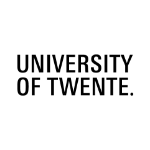
No
SimplyPill
Our mission is to support patients to take control over their medication adherence, wherever they are, together with whoever they want
It has been estimated that medication non-adherence, i.e., not taking medication as prescribed, is associated with almost 200,000 deaths annually in the European Union (EU). From an economic perspective, non-adherence is responsible for €80–125 billion of potentially preventable direct (e.g., hospitalisations, waste of medication) and indirect (e.g., work productivity losses) costs in the EU. This problem is so severe that “effective ways to help people follow medical treatments could have far larger effects on health than any treatment itself”. Research has shown that “adherence rates average around 50% and range from 0% to over 100%, and there is no evidence for substantial change in the past 50 years.” Medication non-adherence can be caused in many different ways, but a common reason is side effects. Certain medicines have a long-term, or preventive, function, and patients don't directly feel the positive effects of the medication. On the other hand, side effects can show up immediately. This can lead to people getting demotivated to take medications, and sometimes stop without consulting their doctor. Other factors that can influence medication adherence are patients’ lack of understanding of the medication, or patients simply forgetting. These are not the only reasons for medication non-adherence and will differ per patient. This is why the WHO says that “Patient-tailored interventions are required” when it comes to medication adherence. Even though medication adherence is a big problem which can have a great impact on anyone, the current tools to support patients have not been widely adopted in practice. These current tools should be able to accurately assess not only adherence but also those factors that contribute to it, however, they are not able to do this.
The smart dispenser will be fully portable and feature reminder hardware, which is fully customisable by the user, or a caregiver, through a smartphone app. The user can input their medication schedule and edit it at any time. Because the smart dispenser is a single-pill solution, it will keep track of the exact amount of pills, and communicate this with the app. This allows the user to track their medication statistics, a form of Electronic Monitoring Feedback, which has been proven to improve medication adherence by 19,8%. Our app makes sure the patient is actively engaged in their medication adherence. Interviews with doctors have shown us that many medication adherence problems are due to a lack of understanding by the patient about what their medicines do, and the importance of taking them. Extra information about the medicines they are taking and what they should do when they feel certain side effects can greatly improve communication with doctors and allow patients and doctors to personalise the intake schedule together. In our research, we often heard that healthcare providers do not want to use another digital system. To fulfil the wishes of healthcare professionals, we will integrate our data insights into the Electronic Patient Dossiers (EPD System) which they are already using. This way, the healthcare professional does not have to spend any time learning a new program and will get the information that they need to know in their EPD System. Pharmaceutical companies are increasingly investing in efforts to go Beyond the Pill. They want to become service providers instead of medication producers. Tracking medication adherence is one of the key tenets of this Beyond the Pill trend, according to a report by McKinsey & Company. It also states that, in the US alone, yearly there are $80 billion worth of lost pharmaceutical sales for these companies. Providing Medication Adherence as a Service will enable pharmaceutical companies to increase their revenues from medication sales while also creating a closer relationship with patients. Coupling MAaaS and certain medications will prove valuable for SimplyPill. More details about this coupling can be found in the business model section.


 Thijmen Jong
Thijmen Jong


